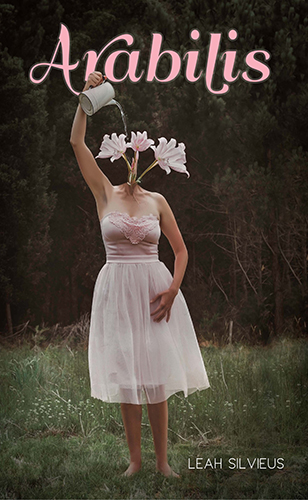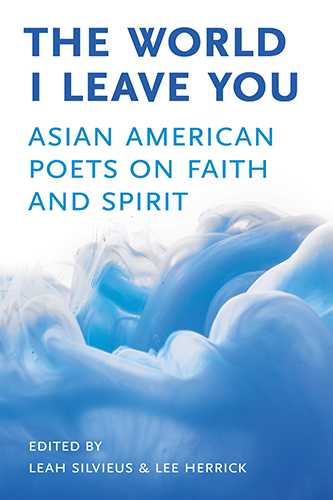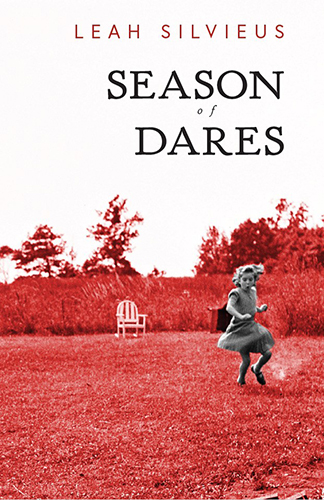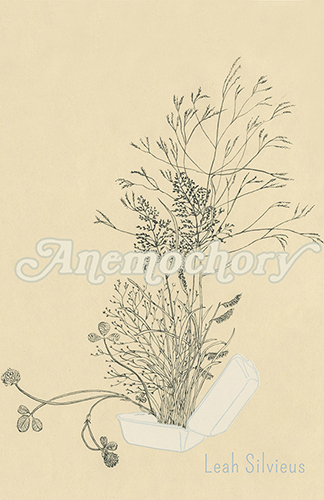Books
Books

Arabilis
Sundress Publications
Purchase
Arabilis integrates the ordeal of othering into the fundamental uncertainty of life to produce a collection that is honest in its pain, confusion, and joy. Beautiful and desolate as a rural upbringing, these poems delve into the complex relationship between the self and the indifferent world it inhabits. In this cogent work, the lonely thrill of existence is characterized by gunpowder, bone, and Bud Light empties. Presented through the perspective of a person of color adopted into a white family, this collection simultaneously acknowledges the senselessness of life and demands an explanation for it. Silvieus’ poems advance through the changing of the seasons, paralleling the introspective nature of youth and adulthood alike through an examination of faith, nature, and memory. Sacrilegious discourse is converted to sacred invocations as this collection examines the viscera of life and loss. Belying each poem is a tenacious grasping for answers to questions impossible to express, validating the intuition that though we turn to God, Earth, or another person, we may never receive a fulfilling reply. In the face of this apparent helplessness, these poems continue to stumble in the dark, reaching with the God-want of their hands, relentless in their search for that which might finally reach back.
“Silvieus emerges as a poet of our generation, who invokes the bones of orphans, the mud of moral virtue while suspending disbelief with fiercely accomplished form and language, both ancient and familiar, costly and sustained. A spirit of difficult grace, Arabilis, makes arable the crushing consequence of hope, of split identities and confronts the task of unburying global histories, politics, and faiths to re-open the accumulated wounds of memory. A violent baptism, anointed grief, Silvieus, in every poem, resurrects the bodies of animal, of hunger and cast-off devotion, an incantation that rises from the dead, to claim what was lost and must be regained.”
— E.J. KOH
“The poems speak of a hunger to belong to a landscape and though the landscape does not reject the speaker, there is still the forgetful sky or the “drenched volume of our world.” The palpable loneliness of waiting for grace fills these beautiful poems and yet its epiphanies are not quiet. They emerge along the highways of pass-through towns and gleam in the headlights like the unexpected eyes of a deer. The wisdom of the fields, the rising stems piercing through the undergrowth, the insistence of the seasons— all of it cuts through the din of our cacophonous lives in Leah Silvieus’ marvelous book. These are astounding poems.”
— OLIVER DE LA PAZ
“Leah Silvieus is one of the most exciting young poets writing today and Arabilis, a most exciting debut. Silvieus’ subtle music, her graceful line and gift for the finely wrought image, all bring to mind Keats’ dictum that ‘poetry should surprise by a fine excess and not by singularity.’ That said, these poems are as singular as they are memorable. And years from now, when readers are singing Silvieus’ praises, I won’t say I told you so, but…”
— JOHN MURILLO

The World I Leave You: Asian American Poets on Faith and Spirit
Orison Books
Available May 5, 2020
Purchase
The first anthology of its kind, The World I Leave You: Asian American Poets on Faith and Spirit spotlights poets of the Asian diaspora with connections to East, West, South, and Southeast Asia and the Pacific Islands who represent a variety of cultures and religious traditions including Islam, Hinduism, Christianity, Buddhism, and Zoroastrianism. Among the contributors are active religious practitioners, recent converts, agnostics, and those who practice a personal spirituality. This vibrant collection includes many of this generation’s most acclaimed writers and exciting new voices to create a nuanced and dynamic portrait of today’s Asian American poets and their spiritual engagements with issues such as poetry as spiritual witness, locating the divine in the natural world, relationships with cultural history and ancestors, spiritual practice as a form of political resistance, questions of faith and doubt, and prayers and rituals.

Season of Dares
Bull City Press
October 2, 2018
Purchase
Season of Dares leans into fragments of the scriptures, narratives and mythologies of a Korean adoptee’s childhood in the rural American West. Fearlessly, it revisits and explores the physical and spiritual landscapes of those communities and the tensions between the impulses that shaped them – violence and tenderness, stoicism and sentimentalism, self-reliance and belief in divine providence.
“It takes wisdom to know that ‘Faith is not feast / but desire, not beauty of the table but what drags us starving there.’ Indeed, Leah Silvieus is an enviably wise poet. Like Hopkins, she knows the divine lies in the material world—in paper birch, chicken wire, and headband halos. And like Dickinson, she knows the poetic line can be a powerful and immortal incision. Silvieus knows that, like the good girl on the choir bus, some quiet poems are also ‘glittering like a scream.’ Don’t be fooled by the quiet, exquisite craft of this work: Season of Dares is a brutal, true, and fearless book.”
— JENNIFER CHANG, author of Some Say the Lark
“Leah Silvieus’ Season of Dares is full of elegies and rehearsals for resurrections. The natural world radiates meaning here, where pearl-bright larvae glisten in a plum’s rotten core and a girl finds her hair in a wasp’s burning nest. Nature brims with a benign cruelty, a terrible beauty, and makes us question who we perform our mercies for. Silvieus’s lines move the way a prayer slides across the mind, and her images linger, shimmer, last. Silvieus reminds us it’s not where we’re from but where we’re made that counts, and in these poems we are made and remade with cottonwoods, the shrieks of grackles, lilies forced to bloom with hairdryers, the late season’s burn pile awaiting a match.”
— TRACI BRIMHALL, author of Saudade
“The poems in Leah Silvieus’ Season of Dares are breathtaking high-wire ballets: muscular, musical, elegant. I am in awe of this poet’s deep command of and respect for language—a language so palpable it takes me to that rarefied place where I can actually taste the words. For Silvieus, language is a vehicle for memory and devotion. ‘Faith,’ she says, ‘is not feast but desire, not beauty of the table but what drags us starving there—’ For the reader, these poems are faith and feast, beauty and hunger. They will fill your mouth with flowers.”
— MAUREEN SEATON, author of Fisher

Anemochory
Hyacinth Girl Press
Purchase
Every poem in Anemechory stuns me. Leah Silvieus is a breathtaking talent who writes with a rare mastery and grace, while guiding us through fracture, loss, memory, and reconstruction in one revelatory poem after another. Whether she writes about a storm in North Carolina or a dormant volcano in Korea, the poems always reveal new truths: “never is a sky more beautiful than when ready to surrender its fury. Did no one tell us?” Put simply, this is a brilliant poet, and I love these poems.
— LEE HERRICK, author of Scar and Flower
